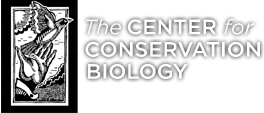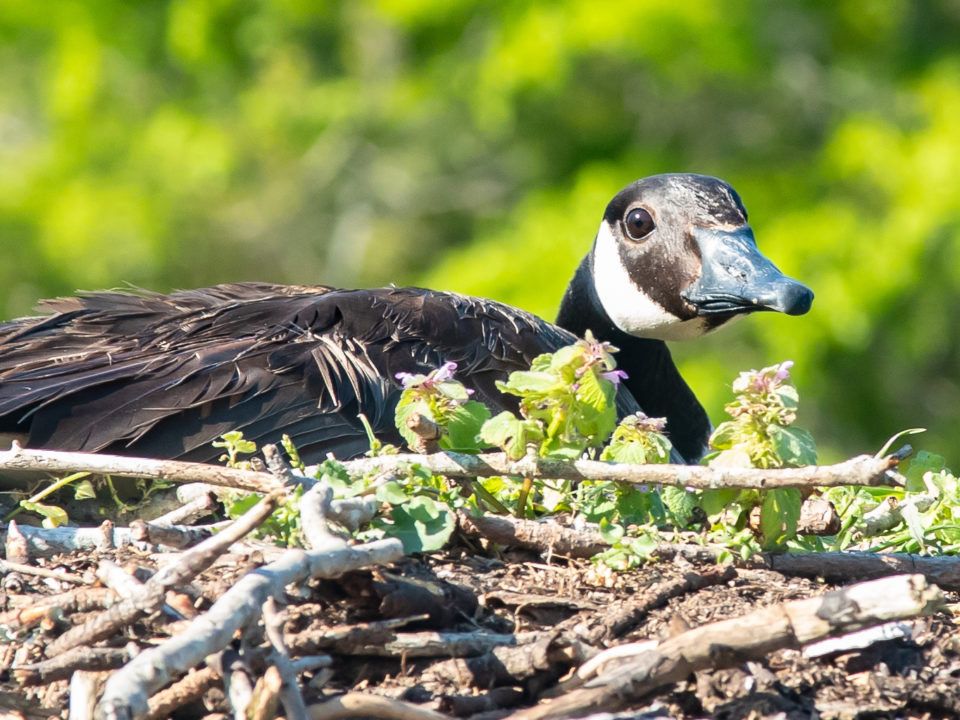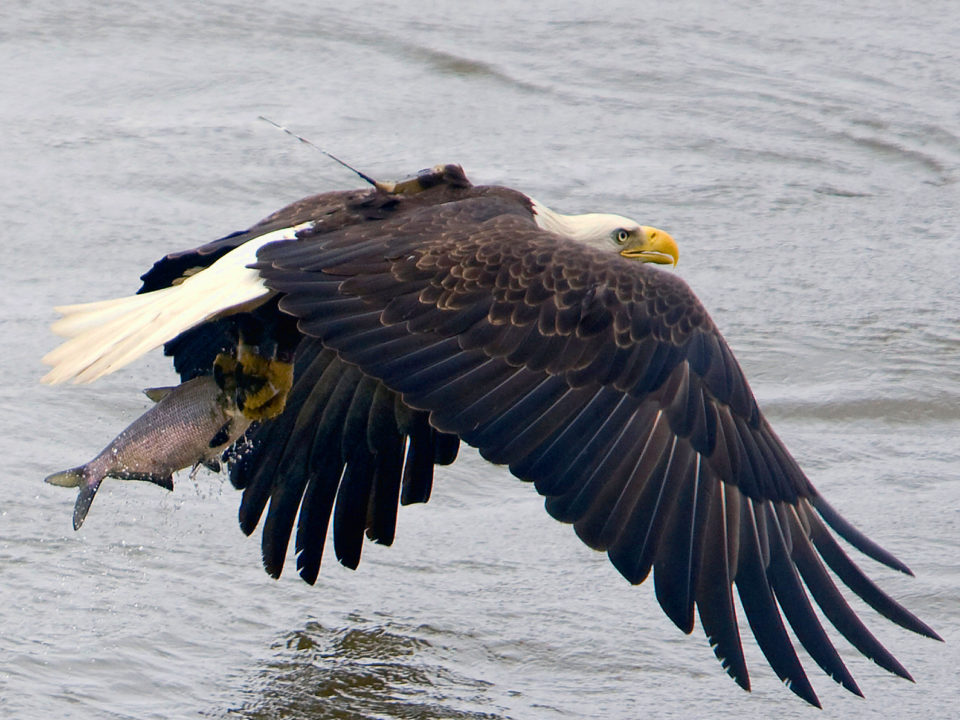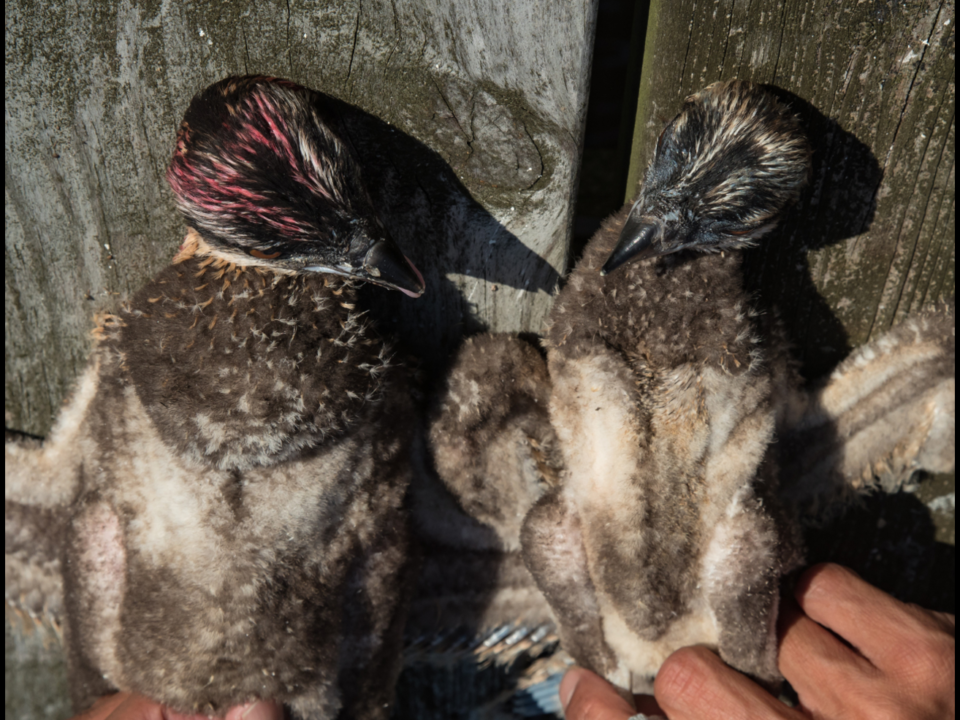Machi and Goshen’s Conservation Legacy
Camellia Visits Moyock, NC
September 6, 2013Meet Our 2013 Tracked Osprey!
September 11, 2013
The loss of Machi and Goshen on Guadeloupe (two whimbrel being tracked by CCB scientists) to hunters on 12 September, 2011 was a watershed event in shorebird conservation. The shooting of these two birds shined a light on the dangers of migration for this declining population and heightened awareness of shorebird hunting within the conservation community. The outcry was heard. Shortly after this event occurred an international working group was formed to begin assessing the potential impact of hunting on shorebirds using the Atlantic Flyway. The group has focused on sustainable shorebird harvest limits, current harvest levels, hunting policy, and law enforcement. Although work is ongoing in all of these areas, the effort is beginning to bear fruit.
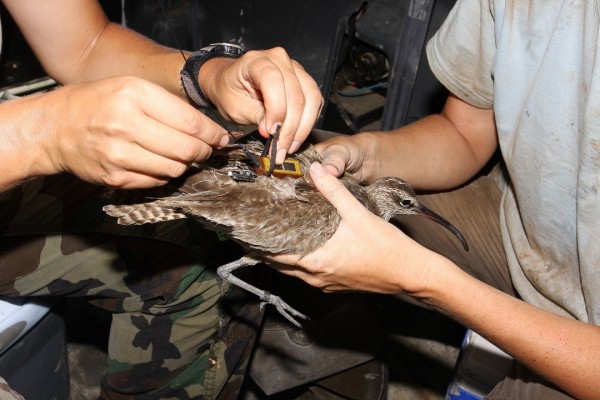
Libby Mojica fits Machi with a satellite transmitter in the fall of 2009. Photo by Bart Paxton.
Several changes to hunting policies have been made within major hunting communities in the West Indies. The Ministries for the Environment of both Guadeloupe and Martinique have agreed to several regulation changes including 1) addition of red knots and solitary sandpiper to the no-hunt-list, 2) a bag limit of 20 birds per day per hunter, and 3) a three-year moratorium on the shooting of Hudsonian godwits and whimbrels (implemented on Martinique in 2013). A recent determination by the Environmental Ministry in Paris has set penalties for shooting red knots. Hunting is a long-standing part of French culture. Policy changes by the ministries are a tremendous step toward shorebird conservation.
In addition to positive policy changes on Guadeloupe and Martinique, the Barbados Wildfowlers Association has passed a series of self-imposed regulations. These include 1) limiting the total annual harvest on the island to 22,500 birds, 2) limiting the annual harvest to 2,500 birds per swamp, 3) limiting the daily harvest to 300 birds per swamp, 4) limiting the annual harvest of lesser yellowlegs to 1,250 birds per swamp, 5) limiting the harvest of American Golden Plovers to 100 birds per day per swamp, and 6) limiting the number of active hunters to 3 per swamp. The group had previously passed a self-imposed moratorium on hunting whimbrel. The voluntary adoption of hunting policy is a positive development for shorebird conservation.
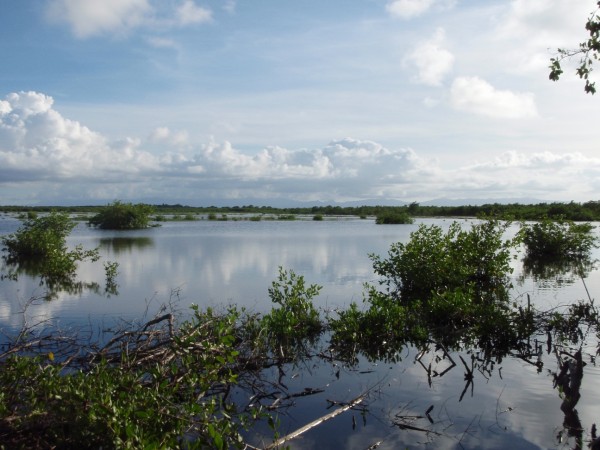
Port Louis shooting swamp in Guadeloupe where Goshen was shot in September of 2011. Photo by Fletcher Smith.
Machi and Goshen have proven to be a catalyst for change. Following their widely publicized loss, the conservation community, government agencies, environmental ministers, and responsible hunting groups have come together to move toward sustaining vulnerable shorebird populations.
The working group includes The U.S. Fish and Wildlife Service, The Canadian Wildlife Service, Birdlife International, The Society for the Study and Conservation of Caribbean Birds, AMAZONIA, New Jersey Audubon, and The Center for Conservation Biology.
Written by
Bryan Watts | bdwatt@wm.edu | (757) 221-2247
September 9, 2013
Related posts
A brood of osprey in Mobjack Bay showing a well-fed chick (left) and an emaciated chick (right). The chick on the right would die the following week due to starvation. Work in Mobjack Bay over a 40+ year period has shown that both reproductive rates and food delivery rates have declined dramatically. The decline in provisioning has led to an increase in brood reduction or chick loss due to starvation. Photo by Bryan Watts.
